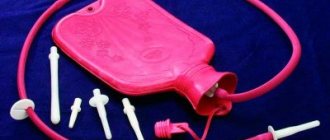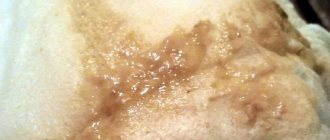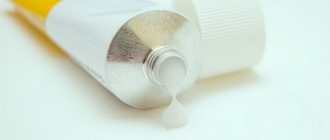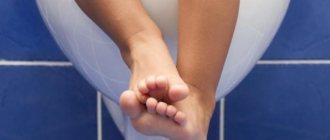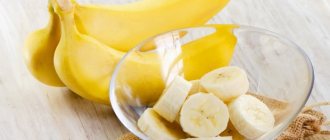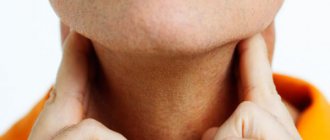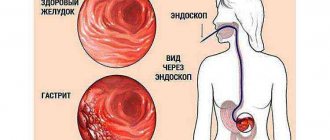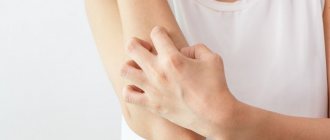Anal itching can be caused by various factors and diseases. This unpleasant symptom can appear equally often in men and women. In addition, accompanying symptoms may be observed (burning sensation, abnormal stool, bloody discharge, pain). These irritating, discomfort-causing sensations indicate the progression of unpleasant pathologies and diseases, so it is important to know what causes them and what ointment is needed for anal itching.
Factors causing anal discomfort
Discomfort sometimes appears in the anus due to various factors. It may indicate the development of certain diseases:
- gynecological pathologies;
- haemorrhoids;
- allergic dermatitis;
- helminthic infestation;
- anal fissure;
- fungal infections;
- scabies, pediculosis;
- diabetes mellitus, pancreatic and liver diseases;
- infectious diseases.
External factors can also cause unpleasant symptoms in the anus:
- stress;
- poor nutrition;
- increased sweating;
- tight synthetic underwear with rough seams;
- poor hygiene.
Typically, these unpleasant sensations occur around the anus and then spread to the entire groin area. The discomfort may be short-lived. insignificant or longer with a bright manifestation. In the anal area, compactions and a burning sensation may also appear . The appearance of any alarming signs is a signal to make an appointment with a proctologist and undergo a comprehensive examination.
Causes of the phenomenon when a burning sensation in the anus appears after diarrhea
In fact, many people experience discomfort after loose stools. Even children complain to their parents that after going to the toilet they sometimes “burn their bottom.” The main reasons why discomfort may occur after diarrhea:
- Presence of bacterial or viral infections;
- Failure to comply with personal hygiene rules;
- Presence of worms or parasites in the body;
- Diseases of the rectum;
- Frequent consumption of spicy foods;
- Venereal diseases;
- Injuries to the anus;
- Diabetes;
- Overweight;
- Diseases of the gastrointestinal tract;
- Stressful situations;
- Allergic reactions.
Diagnostics
To choose an effective remedy for itching, you need to correctly determine the cause of its occurrence. This work should be left to specialists.
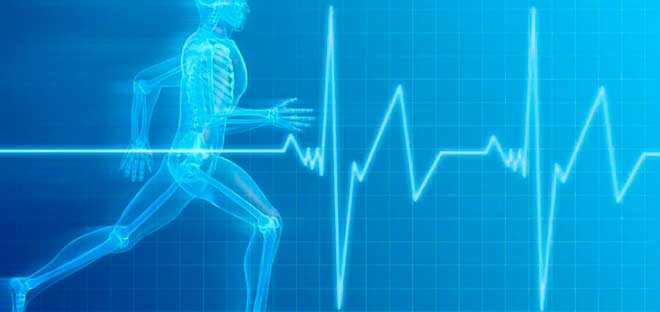
The examination will be carried out by various doctors, from a pediatrician to a dermatologist and gynecologist. You need to undergo the examinations prescribed by them:
- mucosal biopsy;
- palpation;
- endoscopic examination;
- stool analysis;
- sigmoidoscopy;
- proctography;
- blood for sugar;
- smears for genital infections.
A correct diagnosis makes it possible to quickly solve a delicate problem.
Top 10 ointments that eliminate discomfort
Quite often, doctors prescribe ointments for anal itching. The course of treatment with these medications is about 3 – 5 days . Here are 10 ointments that are most often used to relieve anal itching:
- "Proctosan." The product for topical use is considered very effective and well tolerated by patients. Side effects such as swelling, redness, and peeling are very rare. Not used to relieve itching in children under 18 years of age, nursing women or pregnant women.
- “Posterized.” The ointment has a characteristic phenol odor. Side effects occur rarely. The product is allowed for use by pregnant and lactating women after consultation with a specialist.
- "Relief". This ointment is considered very effective against itching in the anus. It relieves burning and itching in the shortest possible time. It does not contribute to the development of side effects; it can be prescribed to eliminate swelling and bleeding.
- "Aurobin." A white ointment that has an antibacterial and anti-inflammatory effect on tissues. The drug has a large list of contraindications, so you need to consult a proctologist before starting to use it.
- "Troxevasin". The medication is tolerated quite easily by children and older patients. In rare cases, side effects occur (they are often represented by urticaria, eczema). Not used in the treatment of pregnant women (1st trimester).
- "Hepatrombin G". The ointment is considered highly effective in eliminating anal itching. Not used at the beginning of pregnancy. Prolonged use may cause an allergic reaction.
- "Fleming's ointment." Doctors may recommend a remedy for the treatment of simple forms of hemorrhoids due to its ability to relieve inflammation and relieve the unpleasant symptoms of this disease. Contraindicated in children under 12 years of age.
- "Cortonitol-Darnitsa". Used to provide anti-allergic, anti-inflammatory effect. Contraindicated in patients under one year of age. Among the side effects, the use of the medication may cause a slight burning sensation.
- "Belogent." The use of the product provides antibacterial, antiallergic, action, eliminates inflammation, but can cause a dermatological reaction. The ointment is contraindicated for pregnant women.
- "Celestoderm B". The ointment can effectively eliminate discomfort in the anal area. It should not be used in the treatment of patients under six months of age, pregnant or lactating women.
Methods for treating itching at home, depending on its cause
Itching is not an independent disease; rather, it acts as a “bell” that not everything is in order in the body. In this regard, the doctor prescribes both comprehensive treatment of the underlying cause and therapy to relieve symptoms, which can be carried out at home.
For skin diseases, local agents with drying properties (zinc, hydrocartisone ointments) are used.
Dysbacteriosis
With a significant decrease in the number of beneficial microorganisms, the flora and degree of acidity in the intestines changes. This provokes irritation of the mucous membrane and itching in the anus.
To eliminate such discomfort by improving bowel function, the following are most often used in combination:
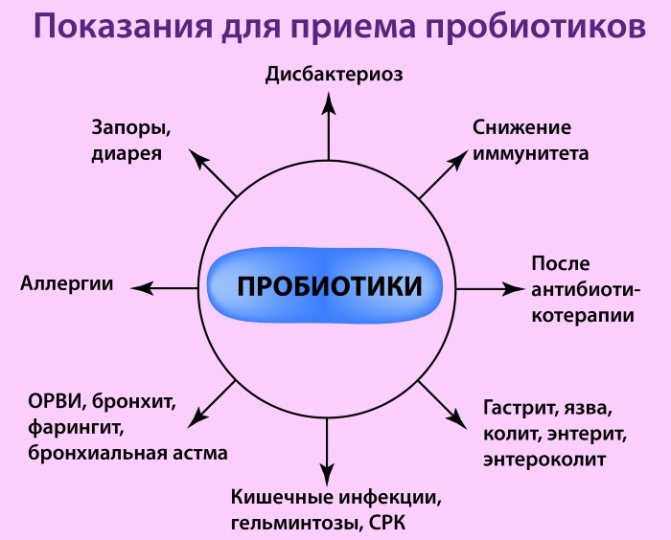
The best probiotics to restore gut microflora help eliminate all these symptoms
- prebiotics;
- antispasmodics;
- antibiotics,
- dietary fiber (carrots, seaweed);
- amino acids glutamine and arginine (chicken, beef, greens);
- bifidobacteria (butter);
- lactobacilli (lactic acid products).
and also, to relieve symptoms of itching, antihistamines such as Zyrtec or Claritin (½ or 1 tablet per day until the symptom completely disappears).
To reduce the feeling of itching, traditional medicine recommends sitz baths with chamomile. The raw materials (3 tablespoons) are brewed in 1 liter of boiling water, kept for 15 minutes, the resulting infusion is diluted with 3 liters of warm water. The procedure lasts 15 minutes. and helps soothe itching and relieve inflammation.
To speed up the disease and quickly get rid of itching, diets with a high content of:
Mycosis
Fungal disease most often occurs when intimate hygiene rules are not followed and requires a comprehensive approach and application:
- local anti-inflammatory drugs (hydrocartisone or prednisanol ointments - course 2-4 days, 2 lubrications);
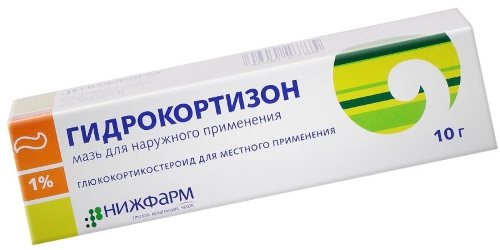
- antiseptics such as fucorcin (the entire treatment period, 1 r/day);
- antifungal creams (clotrimazole, lamisil, designed for the entire course of general treatment);
- systemic drugs, such as fluconazole (used as directed by a doctor).
Traditional medicine advises using tampons or lotions with kefir, alternating them with chamomile infusion. An enema at night with tea tree and calendula oils (10 ml of each) is considered effective.
Helminthiasis
Itching in the anus in women, the causes of which may lie in the presence of pinworms or Giardia in the body, noticeably intensifies at night, interfering with normal sleep.
In addition to this symptom, a person experiences:
- bowel dysfunction;
- intoxication;
- allergic manifestations on the skin;
- discomfort in the stomach;
- changes in appetite.
All symptoms disappear with the death of the parasites when taking medications such as:
- Vermox – prescribed 1 tablet. 2 r/day for 3-5 days depending on the degree of damage to the body;
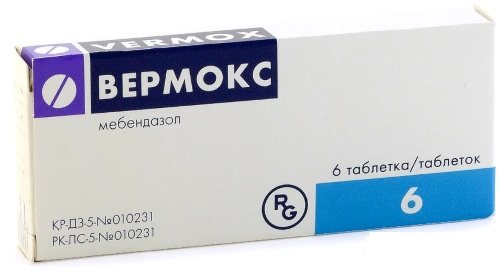
- Biltricide - dosage is determined taking into account the patient’s weight, course up to 2 days;
- Decaris – taken 1 time 150 mg on an empty stomach;
- Helmintox - take 1 tablet, after 2-3 weeks another 1 tablet.
Drugs are selected depending on the type of parasite and the patient’s tolerance of the active substances. For intense itching, antihistamines are prescribed at night (suprastin or tavegil, 1 tablet). In addition to pharmaceutical products, you can use a traditional medicine recipe at home.
Flaxseed oil is used in the fight against many types of worms; for this you need to take 1 tsp. 30 minutes before meals 3-4 times a day. To relieve itching, you can use sitz baths from a decoction of oak bark (3 tablespoons per 2 liters of water), alternating them with baths from a decoction of birch buds (the same proportions).
Allergy
Rashes and redness in the anus are affected in 2 ways: by eliminating the source of the allergy and reducing the manifestation of symptoms.
For the latter, oral medications are used:
- Levocetirizine-Teva - indicated in cases of atropic dermatitis, urticaria. The dosage and regimen depends on the patient’s age;
- Erius – effective for dermatitis, urticaria, does not cause drowsiness. The drug begins to act after 50 minutes. after taking it for 24 hours.
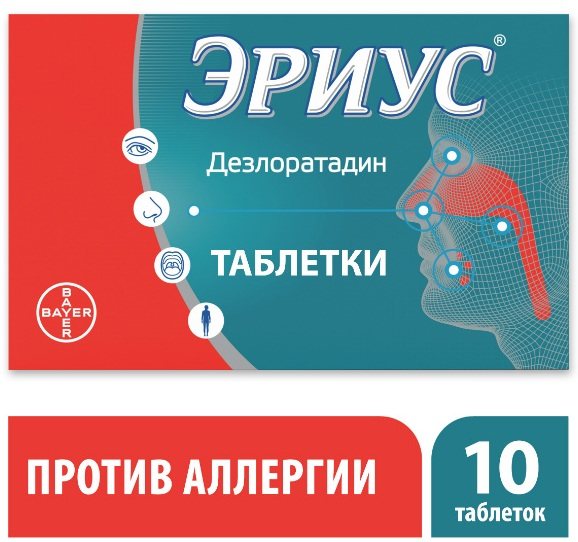
- Cetrin – action 1 tablet. designed for 1 day, non-addictive.
- Claritin - the maximum effect of the tablet is achieved after 8 hours and lasts 1 day. The course depends on the age of the person,
Ointments and gels are also used to relieve itching locally:
- Psilo-balm is a gel for affecting affected areas of the skin, has an analgesic and calming effect. Apply 2 rubles/day.
- Fenistil-gel – indicated for allergies and itching. Used 2-3 times a day.
- Mesoderm – fights inflammation, swelling and itching. Apply to clean skin 2 times a day.
- Proctosedyl - reduces itching from hemorrhoids, anal fissures, eczema. The drug is contraindicated for fungal diseases.
A good additional remedy in the fight against skin manifestations is a bath or lotion with a decoction (infusion) of string (3 tablespoons per 1.5 liters of water), which has anti-inflammatory and antimicrobial properties. The procedure lasts 15 minutes.
Mental disorders
Being in stressful situations, nervous strain, and mental disorders can lead to skin rashes and uncontrollable scratching in various parts of the body. To treat nervous scabies, medications are selected according to the cause of the disease and its severity.
It can be:
- Valerian (in drops, tablets) - prescribed 2-3 times a day after meals for 7-14 days or during periods of increased emotional stress.
- Valocordin - used as a sedative, 15-20 drops. 3 times a day before meals.
- Afobazole is an over-the-counter drug prescribed for anxiety attacks and insomnia. Taken for 2-3 weeks, 30 mg per day.
- Atarax – refers to daytime tranquilizers, reduces the sensitivity of the peripheral nervous system and psychomotor agitation, acts as an antiallergic drug. For itching, take 25 mg during the day and 25 mg at night.
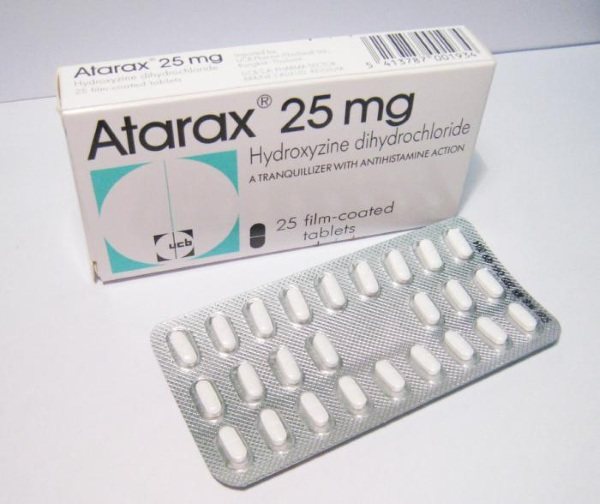
Rules for the use of ointments
To quickly eliminate annoying itching in the anus, you must correctly use the medications prescribed by your doctor.
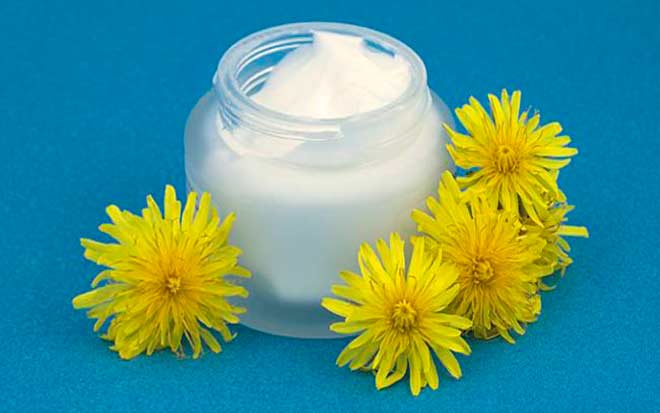
When using the medicine, you must adhere to the following rules:
- Read the instructions before using any product.
- Carry out a skin reaction. It is enough to apply a little ointment to the dermis in the area of the elbow bend and leave for about 30 minutes. If the allergy does not manifest itself, you can use a product to treat the anal area.
- Maintain personal hygiene when using medications. The ointment should be applied only to previously cleansed dermis.
- Apply the ointment before bed and after each bowel movement.
- It is not recommended to wipe the anus area with paper during the entire course of treatment. It is better to replace this procedure by washing with warm water.
Use of heparin ointments
Often, discomfort in the anal area is caused by inflammation of the hemorrhoids. For therapeutic purposes, drugs from the group of coagulants are prescribed:
- "Hepatrombin G".
- "Heparin ointment."
- "Heparoid Zentiva".
These medications have anti-inflammatory and antithrombotic effects. They are prescribed medications with heparin, which relieve painful symptoms in the anal area, reduce swelling, activate tissue regeneration, and eliminate an allergic reaction.
Ointments with a wide spectrum of action
An ointment for itching in the anal area with a wide spectrum of action is characterized by the presence of several active substances. Thanks to their unique composition, these medications quickly cope with itching of the perineum and burning in this area. Doctors consider the following to be more effective ointments:
- "Relief Advance". Includes shark liver, which activates cell regeneration and stops bleeding. The product constricts blood vessels, eliminates swelling and bleeding, and acts as an anesthetic.
- "Aesculus." The hemolytic agent is used in complex therapy. It has an anesthetic, anti-inflammatory, venotonic effect.
- "Proctosan." It contains lidocaine, so it is used as an anesthetic. Eliminates discomfort in the rectal area, prevents the penetration of bacteria into the affected tissues.
- "Girudoproct". The ointment contains methyluracil, extracts of sea buckthorn, leeches, and horse chestnut. It is used for an analgesic, antipruritic effect, accelerating tissue regeneration, restoring leukocytes, and relieving inflammation.
- "Bezornil." Contains amber, borneol, musk. Helps eliminate unpleasant symptoms, inflammation, and has an astringent effect.
How to eliminate itching from hemorrhoids?
Itching with hemorrhoids occurs quite often, it does not pose a threat to life and health, but it causes a lot of inconvenience to the patient and it is difficult to cope with this problem. Proctologists recommend undergoing complex therapy, including the use of medications, adherence to hygiene rules and a special diet.
Itching with hemorrhoids occurs quite often, it does not pose a threat to life and health, but it causes a lot of inconvenience to the patient and it is difficult to cope with this problem.
Why do hemorrhoids itch?
Anal itching occurs for the following reasons:
- Inflammation of hemorrhoids. The pathological process is accompanied by the release of mucus, which irritates the skin of the anus. The more intense the inflammatory process, the stronger the itching.
- Chemical exposure. Feces contain substances that, when in contact with the mucous membranes of the rectum, give a reaction. The tissues are destroyed and a burning sensation appears.
- Mechanical damage. Hard feces injure dilated vessels, which later become infected. Small wounds form, which are the source of perianal itching.
- Insufficiency of the anal sphincter. After each bowel movement, residual feces and mucus are released from the intestines, irritating the skin. Most often, this is observed with external hemorrhoids.
- Anal fissure. Often occurs with internal hemorrhoids. Itching in this disease is accompanied by pain and burning after defecation.
- Weeping ulcers on the mucous membranes of the anal canal. Their healing is prevented by regular bowel movements. Over time, the wounds increase in size and others appear.
How to relieve itching
Medications can help relieve itching in the vagina and anus during acute hemorrhoids: tablets, ointments and rectal suppositories. The drugs reduce or completely eliminate the sensitivity of the mucous membranes to irritation, which causes a burning sensation in hemorrhoids.
Most first aid medications contain benzocaine or lidocaine, which have an analgesic effect.
Proctosan
Protoctosan ointment or suppositories is a complex action product that has antiseptic, analgesic, anti-inflammatory and healing properties. Accelerates the recovery process of the mucous membranes of the rectum, eliminates itching and bleeding. Proctosan is used for external and internal hemorrhoids of 1-2 degrees.
Ultraproct
The drug contains zinccochaine and fluocortolone derivatives. Suppositories have a pronounced analgesic, antihistamine and anti-inflammatory effect. Quickly eliminate the unpleasant symptoms of hemorrhoids, providing long-lasting results. For external hemorrhoids, Ultraproct is used as an ointment. The drug can be used in late pregnancy.
Anuzol
Anuzol suppositories are an effective treatment for inflammation of internal hemorrhoids. The drug normalizes stool, restores blood flow, eliminates itching and burning. With regular use, a protective film is formed on the mucous membranes, preventing the appearance of weeping ulcers.
Natalsid
Rectal suppositories Natalsid are used in the treatment of external and external forms of dilation of hemorrhoidal veins of any stage, anal fissures and proctosigmoiditis. Suppositories have anti-inflammatory, hemostatic and healing effects.
Neo anuzole
Neo-anuzol - rectal suppositories with antibacterial, analgesic, drying and healing effects. Used during periods of exacerbation of hemorrhoids to eliminate all its symptoms, including itching and burning. Since the drug does not contain components that are absorbed into the blood, there are few contraindications to its use.
Olestesin
The drug contains sea buckthorn oil and anesthesin. The suppositories begin to act a few minutes after administration and eliminate itching and pain. Regular use of Olestezin helps to eliminate swelling and inflammation of the intestinal mucosa and normalize blood circulation in the pelvic organs. Sodium etazol, which is part of the product, fights pathogenic bacteria, preventing suppuration.
Hepazolon
Gepazolon suppositories are used for internal forms, ointment - for external forms of the disease. With regular use, the drug prevents the formation of blood clots, promotes the healing of cracks, and accelerates recovery processes. Prednisolone, which is part of the drug, eliminates itching of allergic origin.
Proctosedyl M
Proctosedil M ointment is a drug for the complex treatment of hemorrhoids, which has anti-inflammatory, analgesic and protective effects. The hydrocortisone contained in the cream reduces the intensity of the inflammatory process, while framycetin destroys pathogenic microorganisms that cause itching.
Proctoglivenol
Procto-Glivenol suppositories and ointment reduce vascular permeability, restore blood circulation, eliminate congestion and tissue swelling. The lidocaine included in the composition quickly relieves such unpleasant sensations as pain, burning and itching.
Nigepan
The drug contains anesthesin and heparin. Nigepan solves the problem of inflammation of hemorrhoidal cones, quickly eliminates itching, prevents the formation of blood clots, and promotes the healing of anal fissures.
Propolis DN
A natural antihemorrhoidal remedy, which includes a waste product of bees. Eliminates inflammation, itching and pain, stimulates tissue repair, and prevents bacterial infections.
Posterisan
The active ingredient of Posterizan ointment is a concentrate of E. coli bacteria, which relieves signs of inflammation. The drug has analgesic, antipruritic and bactericidal effects. With regular use, it eliminates anal fissures, normalizes blood circulation, and facilitates bowel movements during constipation.
Gepatrombin G
Gepatrombin G is a combined local drug used for external hemorrhoids. The ointment eliminates itching, prevents the formation of blood clots, relieves swelling and redness. Used to eliminate symptoms of the disease before surgery.
Folk remedies
Itching from hemorrhoids can be eliminated at home using sitz baths, compresses, lotions and homemade suppositories. Before using this or that product, you should consult your doctor.
Sitz baths
Baths with potassium permanganate quickly eliminate itching. The water can be either warm or cold. For 10 liters of water take 1 tsp. potassium permanganate, the procedure should last no more than 15 minutes. Baths are taken 2-3 times a day.
Using Bay Leaf
Lotions and microenemas with bay leaf infusion help relieve itching in the anal area. 10 g of raw material is poured into 200 ml of boiling water and left for 5-10 minutes. Gauze is soaked in the solution and applied to the affected areas. 50 ml of chilled infusion is injected into the rectum with a syringe.
Uses of chamomile
Chamomile compresses are a simple and effective way to relieve itching. 2 tbsp. l. flowers are brewed with 1 cup of boiling water, the cooled infusion is soaked in gauze, which is applied to the anal area for 15 minutes. The procedure is carried out 2 times a day.
Aloe
A natural remedy allows you to get rid of unpleasant sensations in the early stages of the disease. For treatment, juice, fresh leaves or decoction of the plant are used. They are used to make lotions, compresses, suppositories, and oral compositions.
Preventive actions
Itching in the anal area will not appear if you treat the disease in a timely manner, perform proper hygiene procedures, monitor normal bowel function, and avoid excessive physical exertion.
Itching in the anal area will not appear if the disease is treated promptly and excessive physical exertion is avoided.
Reviews
Ivan, 56 years old, St. Petersburg: “For effective treatment of itching, the doctor recommended Nigepan suppositories. I used them for 14 days, during which time the bumps decreased in size and the discomfort disappeared. The candle is easily inserted into the anus, without any discomfort. I was also pleased with the low price of the drug.”
Karina, 28 years old, Volgograd: “I felt itching in the anal area a few days after giving birth. The proctologist discovered hemorrhoids and anal fissure and advised treatment with Proctosan suppositories. The drug was used 2 times a day for 10 days. The pain and itching are gone, the general condition has improved.”
Using suppositories for discomfort
To solve a delicate problem, specialists can prescribe suppositories for an unpleasant symptom in the anal area. The advantage of using this form of the drug is that the active substance penetrates specifically to the problem area.
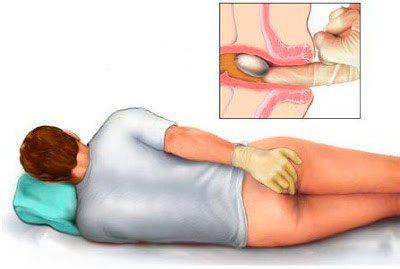
The following candles are considered the most popular:
- "Anusod", "Proctosan". Their main component is belladonna extract.
- "Relief". These suppositories are used to stop the inflammatory process and heal tissue. They have a hemostatic effect.
- "Aurobin." These combined suppositories are used to provide an analgesic effect.
- Suppositories with methyluracil are prescribed to increase immunity and eliminate discomfort in the anal canal.
- Sea buckthorn oil candles are considered the most effective. They eliminate an unpleasant symptom, accelerate the healing of the affected area, and relieve inflammation.
- "Depantol".
- "Acylact".
You can use suppositories to eliminate an unpleasant symptom only after consulting a doctor who will accurately determine the true cause of the discomfort.
If itching and discomfort in the anal area are caused by the development of hemorrhoids, a specialist can prescribe effective suppositories. The following suppositories for hemorrhoids cope well with this delicate problem:
The doctor prescribes the course of treatment for hemorrhoids individually, taking into account the characteristics of the symptoms of the disease. The average duration of therapy is up to 14 days . The therapeutic effect appears after the first use of suppositories. Even if the patient feels relief, it is necessary to completely complete the course prescribed by the doctor.
Causes of pain and burning in the anus
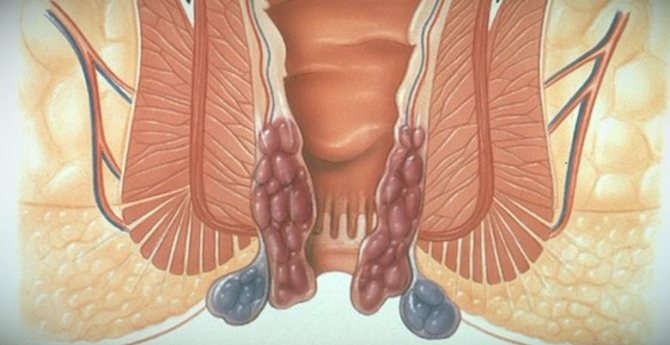
Itching in the anus, pinching, burning, tingling and other troubles can be for various reasons. Conventionally, they can be divided into two parts: external and internal. Let us consider in detail all possible factors.
External
The skin around the anus is thin and sensitive. It easily becomes inflamed from certain external influences.
Irritation on the butt and burning appear for the following reasons:
- Excessive hygiene and cleanliness are good. But some people overdo it when it comes to taking care of their bodies. If you repeatedly use soap and antibacterial wipes in the anal area during the day, you can wash the entire protective layer on the epidermis. Dryness will appear, the skin will become inflamed, and will sting and burn with each bowel movement.
- Lack of hygiene. There is also a downside to self-care - violating the norms of body cleanliness. Lack of a daily shower, insufficient cleansing of the anus during bowel movements, dirty underwear, wearing synthetic low-quality underwear - all this leads to the proliferation of pathogenic bacteria in the anal area, which violate the integrity of the skin and provoke a burning sensation.
- Rough toilet paper. Using hard toilet paper can significantly damage areas with delicate and sensitive skin. Such paper scratches the butt, bacteria penetrate the wounds, and the inflammatory process begins.
- Allergy. Many women, and some men, like to use cosmetics in sensitive areas. Such products can easily cause allergic reactions: itching, red spots, irritation, burning, dry skin.
- Nutritional features. Hot, spicy foods and strong alcohol consumption cause irritation of the stomach, intestines and anus.
- Shaving intimate areas. There is hair not only on the pubis, but also in the intergluteal space. When shaving, delicate skin can be easily scratched. Microtraumas cause discomfort every time you visit the toilet until they heal.
Domestic
Pain after defecation, burning, pinching and other unpleasant symptoms in the anus can be caused by diseases, disorders in the body and other internal factors.
Possible pathologies causing burning and pain in the anus:
- Haemorrhoids . A fairly common cause of itching and burning in the anus. Hemorrhoids (varicose veins in the rectum) often occur in women after childbirth. The disease also appears from a sedentary lifestyle. In addition to discomfort, after going to the toilet you can notice red blood in the stool. The disease is treatable, and the sooner action is taken, the better.
- Anal fissures . Some intestinal diseases lead to fissures in the anus. Usually the fissure bleeds, during stool there is a strong burning sensation, pain, and stinging. Constipation and hard stool can compromise the integrity of the rectum. The wound causes burning and pain during defecation. Timely treatment and diet will help to completely get rid of the problem.
- Dysbacteriosis, diarrhea. Loose stools have an increased content of gastric juice. It is very caustic and irritates the anus during bowel movements. A person may experience a very strong, barely bearable pinching or burning sensation. When stool is restored, the irritated tissues of the anus return to normal.
- Diseases of the genitourinary area . Any infectious diseases of the genital organs can cause pain, cramps and other symptoms in the anus. Harmful microorganisms enter the rectal area, which leads to inflammation and burning. The discomfort goes away after the disease is cured.
- Intestinal parasites . Worms live in the intestines. With active reproduction, they can accumulate in the rectum and sphincter. A person feels their presence in the form of severe itching and burning. In adults, worms are much less common than in children.
- Inflammatory diseases of a non-infectious nature. Some diseases of the stomach, liver, and gall bladder disrupt the intestinal microflora. Gastric juice and increased bile content accumulate in the stool, which leads to irritation of sensitive areas.
- Dermatological diseases . Genital herpes, lichen, infectious dermatitis - these diseases can be sexually transmitted and are localized in the area of intimate organs and the intergluteal space. Any dermatitis causes burning and pinching in sensitive areas.
- Neoplasms . Tumors in the rectum, benign and malignant, can cause unpleasant symptoms during bowel movements and even during rest.
Prevention of anal itching
Preventing anal itching is easy. It is enough to follow the basic recommendations of specialists:
- Eat properly.
- Timely treatment of inflammatory processes.
- Compliance with personal hygiene rules.
- Drink at least 2 liters of water per day.
- Elimination of bad habits.
- Moderate physical activity.
- Strengthening the immune system.
Most often, the cause of itching is a sedentary lifestyle, poor hygiene, and trauma to the mucous membrane. You need to be more attentive to your bowel function and be more active. This will help avoid discomfort and unpleasant itching in the intimate area.
Itching is a symptom that accompanies many proctological diseases. This phenomenon occurs very often and can bother the patient for a long time. To solve the problem and choose the right ointment for itching that occurs in the anus, you need to establish the cause of its occurrence.
This is the symptom: burning in the anus in men and possible causes of its occurrence
Anal burning in men occurs with a number of diseases: hemorrhoids, anal fissure, perirectal fistula, as well as with urethritis, prostatitis and other infections.
Itching in the anus in men can be a symptom of skin diseases - these are fungal-viral lesions of the skin of the perineum, perianal area, and burning can also occur with psoriasis, eczema, dermatitis and a large number of other diseases.
Of course, it is impossible for a person who has this problem to understand all this diversity. Therefore, at the first symptoms, you need to consult a proctologist.
Itching and burning in the anus in men
In most cases, patients prescribe treatment for themselves, turning to the Internet, relatives, and friends for information.
As a rule, such self-medication continues for several months or more. There will be no effect from such therapy; at best, it will bring short-term help, and at worst, it will aggravate the problem.
The vast majority of patients who turn to a proctologist undergo a long course of self-medication. This leads to the fact that those diseases that a person already has become chronic and advanced. But everyone needs to know what diseases can cause itching and burning in the anus.
Haemorrhoids
Hemorrhoids are one of the most common reasons why patients visit a doctor. Almost 50% of the world's population suffers from hemorrhoids to some extent. These are varicose veins of the rectum. It is this that causes itching, burning and discomfort in the rectal area.
In addition, there may be bleeding, acute pain and other symptoms. This disease can be the main cause of burning in the anus in men.
First of all, such a disease as hemorrhoids affects:
- office employees;
- drivers;
- persons leading an unhealthy lifestyle;
- men suffering from constipation;
- movers;
- athletes.
Treatments for hemorrhoids can be divided into three groups:
- conservative treatment for patients with non-advanced disease;
- non-traditional treatment techniques for patients of moderate severity of the disease;
- surgical intervention for patients with advanced disease.
Remember, the sooner a patient seeks help from a doctor, the less invasive technology can be selected for treatment.
Anal fissures
An anal fissure is a small defect in the mucosa at the very beginning of the anal canal. In fact, it’s like a small disease anatomically, but in some cases it manifests itself quite severely.
It manifests itself as pain, burning and itching, and the symptoms can be small, medium intensity, sometimes strong, which cause serious suffering for the patient. Also, when there is a crack, blood is released; as a rule, there is not a lot of it.
Anal fissure
The causes of anal fissure are varied, most often:
- constipation;
- diarrhea;
- lifting weights;
- excessive alcohol consumption;
- other reasons.
If the disease is not treated in time, it can become chronic. The crack grows with fibrous tissue, the edges become rough, and tubercles appear both externally and internally. It is precisely this kind of disease that is already quite difficult to treat.
It is necessary to treat anal fissures comprehensively:
- exclude alcohol and spicy foods;
- improve bowel function;
- take the necessary medications, including using suppositories and ointments;
- follow a diet;
- perform special physical exercises.
Rectal polyps
Polyps are benign growths that can be found anywhere in the esophageal tube.
The first symptoms that may occur with polyps are:
- burning;
- itching;
- the appearance of blood in the stool;
- frequent bloating;
- feeling of incomplete bowel movement;
- frequent urge to defecate;
- other symptoms.
You can see polyps during an examination of the intestines - this is a colonoscopy or rectoscopy.
Also, polyps can be close to the anal opening and people can discover them themselves. In such cases, they fall out while going to the toilet.
Remember that polyps cannot be treated with medication. The best treatment for polyps is complete removal.
Anorectal fistula
This disease is a micro hole in the anal canal located at a depth of 1-2 cm. This is an inflammatory disease that begins in the anal crypt and is characterized by the formation of a fistulous tract.
Anorectal fistula
There are several degrees of difficulty:
- if the fistula is located superficially, it is a so-called simple fistula;
- if it’s deep, it’s a deep, severe fistula;
- There is also a middle fistula and a low-moving fistula.
Anorectal fistula can only be treated by a qualified specialist, because self-medication will only worsen the patient’s condition.
The main symptoms of this disease are the presence of a small hole or wound in the skin near the anus, burning or itching in that area. The disease, as a rule, occurs at various intervals.
Chronic colitis
Chronic colitis is an inflammatory disease of the colon, characterized by the development of atrophic changes in the mucous membrane, as well as dysfunction of the large intestine. Roughly speaking, colitis is inflammation of the intestines.
Chronic colitis is accompanied by the following symptoms:
- burning in the anus;
- stomach ache;
- frequent bloating;
- feeling of incomplete bowel movement;
- frequent urge to defecate;
- in rare cases itching.
This disease is commonly called irritable bowel syndrome. The treatment is carried out by a gastroenterologist. Only he can prescribe the necessary diagnostics and prescribe the necessary medications.
For the treatment of pathology the following is used:
- drug treatment;
- diet;
- in advanced cases, minor surgical intervention.
Worm infestation
Helminthic infestation is the filling of the body with helminths, which cause discomfort, weakened immunity and lead to serious problems. Long-term infestation with worms can lead to intestinal dysfunction. The problem most often occurs in men.
With helminthic infestation, a man may feel:
Diagnosis of this disease must be carried out by specialists who take stool and blood tests for antibodies.
Treatment of helminthic infestation is mainly medicinal and goes away quite quickly.
Urinary tract infections
Urinary tract infections are diseases such as:
- prostatitis;
- cystitis;
- urethritis;
- BPH;
- other.
They can cause burning, itching, frequent urge to urinate, pain in the anus, discharge of pus from the canal and much more.
These diseases can only be diagnosed by a urologist. Only he can make the correct diagnosis and solve your problem.
Treatment of infectious diseases depends on the course, duration and symptoms. Most often, medications help get rid of itching and burning. The doctor may also prescribe specialized massages and other treatment methods.
Diagnosis of the disease and prevention
Itching and burning in the anus in men can be caused by many diseases and factors.
To exclude unnecessary things, you need to monitor the symptoms and consult a specialist in time.
Only a medical institution will be able to make the correct diagnosis, prescribe the necessary treatment and cure the patient.
The main causative agents of these symptoms are: hemorrhoids, anal fissures, rectal polyps, anorectal fistula, chronic colitis, helminthic infestation, genitourinary infections.
Therefore, first of all, it is worth paying attention to these pathologies, which may hide more dangerous consequences in the future.
Remember that any cured disease can come back again, so preventive measures must be followed:
- visit a doctor once every six months;
- stick to a diet;
- take vitamins for prevention;
- strengthen the body;
- engage in simple physical exercises;
- try not to sit in one place for a long time;
- monitor your health.
Causes of pathology
Itching that occurs in the anal area can be a separate ailment or a sign of various diseases:
- haemorrhoids;
- gynecological problems;
- infectious diseases;
- helminthic infestation.
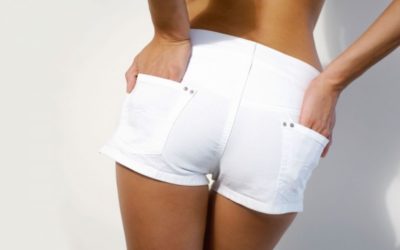
In addition, discomfort can be caused by poor hygiene or poor nutrition. They occur only in the anal area, but often spread to the entire groin area. Discomfort can be short-term and minor or long-term and very strong. In addition, swelling, a burning sensation, and thickening of the skin may appear in the anus.
If you detect any alarming symptoms, you should go to a proctologist and undergo a comprehensive examination.
Name of suppositories for itching in the anus
You can solve the problem of discomfort and unpleasant sensations with the help of candles. The medicine is quickly absorbed, and its active substances go directly to the problem area. The most widely used drugs are:
- Suppositories whose main ingredients are belladonna extract - Proctosan, Anusod, etc.
- Aurobin is a combination suppository that has an analgesic effect.
- Relief - stops the inflammatory process, heals tissue, and prevents bleeding.
- Candles with sea buckthorn oil are considered one of the best.
- Preparations with methyluracil - eliminate discomfort and increase immunity.
Suppositories for itching affecting the anus can only be used after a visit to the doctor. Only a specialist can determine the cause of the problem and prescribe effective treatment.
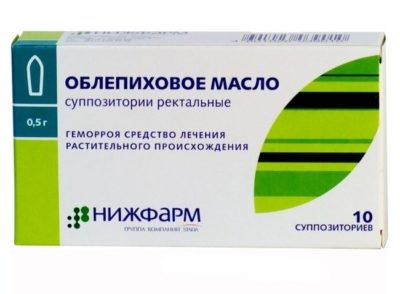
Folk remedies
If you are wondering how to cure itching in the anus at home, use proven traditional medicine recipes.
For the procedure, warm water is taken, into which infusions of medicinal herbs are added - chamomile, birch buds, calendula, oak bark. They effectively relieve itching and relieve discomfort. Baths are best taken at night, lasting no more than thirty minutes.

At home, treatment of itching localized in the anus can be done using compresses. Soak gauze in cold water or wrap ice in it, then apply to the problem area. Lotions with an infusion prepared from periwinkle leaves give a good effect. They are brewed and kept in a water bath. Strain the finished product, cool and apply to the problem area.
- Decoctions of medicinal herbs
Herbal mixture including burdock roots, walnut leaves, chamomile. Mix all ingredients, brew and simmer over low heat for fifteen minutes. Strain the finished product, cool and consume internally. A decoction made from mint, yarrow, chamomile and linden flowers helps well. You can also use oak, willow and buckthorn bark. It is crushed, brewed and taken orally.
Treatment
General recommendations
To relieve symptoms of the disease and prevent exacerbations, follow these dietary and hygiene recommendations:
- Eliminate irritating foods from your diet: spices, hot seasonings, tomatoes, caffeine-containing drinks;
- in case of an allergic reaction, follow a hypoallergenic diet: exclude citrus fruits, chocolate, eggs, whole milk, preservatives and dyes;
- wash yourself twice a day with cool water without soap or intimate hygiene products;
- wash the perianal area after each bowel movement;
- wear loose underwear made from natural fabrics, avoid tight clothing;
- when mucus is discharged from the anus, use a gauze pad;
- change your underwear daily;
- refuse scented toilet paper;
- eliminate alcohol and smoking.
Eliminating the cause of the disease
Secondary itching decreases with treatment of the underlying disease.
- Antihelminthic therapy: Mebendazole, Albendazole, Pyrantel.
- Treatment of exacerbation of hemorrhoids is normalization of stool using diet and laxatives. Detralex and Aescusan to improve venous tone; suppositories with anti-inflammatory and healing effects (Relief, Natalsid, Proctosedyl). In the future - surgical treatment.
- Treatment of anal fissure - Methyluracil and Natalsid in suppositories for healing, injecting with novocaine for pain relief, regular cleansing enemas. If ineffective - surgery.
- Local and general remedies for the treatment of sexually transmitted infections - antibiotics, antiviral drugs, cauterization of condylomas.
- Correction of blood glucose levels in diabetes mellitus: hypoglycemic drugs (Glibenclamide, Metformin, Glibomet), insulin therapy.
Antipruritic measures
- Microclysters with protargol solution - a silver preparation with an antiseptic effect.
- Treatment of the itchy area with antiseptic and painkillers: 1% salicylic alcohol, novocaine solution, menthol.
- Powders with talc and methenamine - reduce sweating and irritation.
- Hormonal ointments - reduce inflammation and itching. They use combination products containing hormones and antibiotics (Triderm, Ultraproct).
- Antihistamines - drugs to combat allergies, block histamine receptors, relieve itching, soothe (Loratadine, Cetirizine).
- Sedatives - herbal preparations have a mild calming effect (valerian extract in tablets, peony tincture, motherwort).
- Antidepressants and tranquilizers are prescribed for persistent severe anal itching, which is accompanied by sleep disturbances and depression. The drugs normalize the emotional background and have a hypnotic effect (Amitriptyline, Diazepam).
- Intradermal administration of a solution of novocaine and methylene blue is recommended when other treatment methods are ineffective to reduce skin sensitivity. Contraindication – weeping skin defects.
- Physiotherapy - Bernard currents, ultraviolet irradiation of the perianal area, laser therapy, underwater shower.
We recommend reading:
Sphincterometry: what does it show and how is the procedure performed?
Folk remedies
Use traditional medicine recipes in addition to doctor's prescriptions. Sitz baths with infusions of medicinal plants give a good effect:
- chamomile;
- calendula;
- series;
- oak bark
Take 3 tablespoons of dry raw materials, pour into an enamel pan, pour in a liter of boiling water, cover with a lid, leave for about 40 minutes. Cool to 37°C, strain and pour into a bowl. The duration of the procedure is half an hour. Herbs can be alternated and combined.
If there is itching and burning in the anus, exclude provoking factors. If general recommendations on hygiene, nutrition and lifestyle do not help, do not delay visiting your doctor!
In continuation of the topic, be sure to read:
- Diseases of the rectum: symptoms and signs of the disease, treatment
- Diseases of the anus: signs, diagnosis and treatment of pathologies
- Proctitis: symptoms and treatment methods (diet, drugs, surgery)
- Rectal fissure: causes, symptoms and treatment of pathology
- Rectal fistula: photos, symptoms and surgery to remove the fistula
- Anal itching: causes and treatment (ointments, microenemas)
- Colorectal cancer: early and late symptoms, treatment methods and prognosis for life
- Cryptitis: definition of pathology, symptoms and treatment methods
- Rectal prolapse: how is the pathology manifested and treated?
- Anal sphincter insufficiency: degrees, causes and methods of treating pathology
Prevention
To prevent itching in the anus, it is important to follow simple rules:
- carry out hygiene daily, including after going to the toilet;
- eliminate constipation, eat easily digestible foods;
- exclude contact with irritants;
- wear the right underwear;
- Avoid friction and damage to the skin in the anal area.
If discomfort still appears, you should definitely go to the doctor, who will tell you how to treat itching in the anus at home.
An ointment for itching in the anus should be recommended by a specialist. If you have problems with anal itching and burning, you should contact a proctologist. He will prescribe an effective remedy based on the results of the analysis, since often these symptoms can occur with pathologies of the colon or rectum. Antipruritic ointments and creams differ from each other in the main active ingredient, list of contraindications and side effects.
What could be the reason?
Burning and anal itching can be a symptom of various pathologies.
There are primary and secondary burning sensations:
- primary is a separate disease, often it is impossible to establish its cause, which is why it is difficult to treat;
- secondary, it is a symptom of another disease, by treating which you can get rid of discomfort in the anorectal area.
Personal hygiene - everything is good in moderation
Failure to maintain personal hygiene in the anorectal area can cause burning, itching and other unpleasant sensations.
This includes infrequent washing, using rough toilet paper after bowel movements, and infrequently changing underwear.
This is especially dangerous if you have problems with defecation: the anus is already regularly injured by hard feces, which increases the risk of anal fissures, and such unsanitary conditions create good conditions for the proliferation of bacteria and fungi in the perianal area.
In this case, a burning sensation in the anus may indicate a secondary infection.
On the other hand, burning in the anus can be caused by excessive hygiene of the anorectal area: frequent washing, use of all kinds of disinfectants and degreasing agents.
At the same time, local immunity in this area is reduced and it becomes quite easy for microorganisms to penetrate into the rectum.
Proctological diseases are the main factor
Diseases of the rectum, which are accompanied by severe burning:
- Chronic proctosigmoiditis, which is characterized by inflammation of the rectum, affecting some organs of the abdominal cavity. Quite often, with this disease, making an accurate diagnosis is problematic, since malfunctions in the functioning of individual organs blur the overall clinical picture. One of the signs of pathology is a strong burning sensation in the anus.
- Benign and malignant neoplasms of the rectum.
- Not the least cause of burning in the anorectal area is hemorrhoids , which increases the sensitivity of the lower intestine and also prevents the anal sphincter from closing normally. With this disease, the patient will experience pain in the rectum, which intensifies with defecation, and bleeding, and with external hemorrhoids the nodes can be easily palpated. Sometimes a burning sensation in the anus is caused by an allergy to antihemorrhoidal ointments or suppositories. An allergic reaction can also occur to any hygiene products for the perianal area.
- Often unpleasant subjective sensations are observed due to anal fissures . In this case, it is especially intensified during or after defecation. This is due to the contact of feces and bacteria on the open wounded surface. Also, with rectal fissures, there is a disruption in the functioning of the anal sphincter, which increases the sensitivity of the lower intestinal mucosa and increases the burning sensation.
Other reasons
Pain, burning and itching in the anus can be caused by reasons not related to proctological pathologies:
- Diabetes.
- Diseases treated by a dermatologist : lichen planus, genital herpes, eczema, seborrheic dermatitis.
- Shaving in the intimate area , the appearance of ingrown hairs.
- Intestinal dysbiosis , as a result of which feces change their chemical composition and can severely irritate the perianal area.
- A burning sensation may occur due to a violation of the contractile function of the anal sphincter , for example due to perianal polyps and condylomas.
- Malfunctions of the liver, pancreas, gallbladder, bile ducts due to various diseases, for example, giardiasis. As a result, the feces become fatty, oily, and are easier to pass out, irritating the area near the anus. Fatty stools may occur when taking weight loss medications based on orlistat.
- Sexual infections . Pediculosis pubis.
- A burning sensation of a neurogenic nature , it usually occurs in patients suffering from mixed diseases of the skin and the central nervous system (neurodermatitis, diathesis, and others).
- Often the cause of discomfort in the perianal area is diaper rash . They most often appear in those who sweat a lot, in people who are overweight or have excessive hair around the anus, in young children, for example due to poor-quality diapers.
- A side effect from taking oral antibacterial drugs or saline laxatives.
Little patients
In children, and sometimes in adults, a burning sensation in the anorectal area can be caused by infection with pinworm worms (enterobiasis). With this disease, nothing but scratching can be seen on the skin.
When infected with pinworms, symptoms in a child include grinding teeth during sleep, only night sleep is disturbed, lethargy, decreased concentration and memory, abdominal pain, and loose stools.
What risks do men take?
A burning sensation in the anus in men may be due to infectious prostatitis. Bacteria from the genitourinary system enter the intestines and cause irritation in the anorectal area.
In this case, I may experience other symptoms: difficulty urinating, pain when emptying the bladder, nocturia, decreased sexual activity.
Women's question
A burning sensation in the anus in women occurs due to various infectious diseases of the urinary system.
Other symptoms may include vaginal discharge, unpleasant odor, pain in the lower abdomen, and problems with urination.
Quite often, discomfort in the anus can appear due to thrush; this disease is easily diagnosed and treated, unlike most gynecological infections.
What are the symptoms associated with?
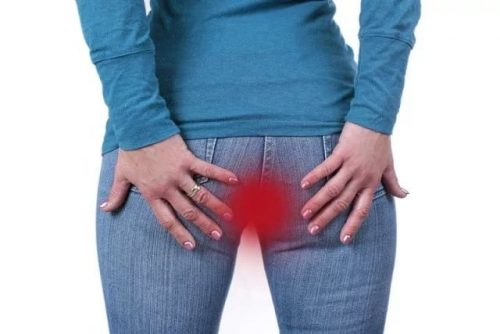
Itching in the anus affects a large number of people. According to medical statistics, every fourth patient has experienced discomfort in the anus at least once in his life. Some do not pay special attention to the disease, others understand that this is a harbinger or manifestation of pathology of the rectum or colon. Experts advise to be attentive to the various symptoms associated with the anus, since they can be a consequence of not only ordinary allergies or diathesis, but also the occurrence of a serious pathology.
Among the multiple diseases, there are those that are often accompanied by anal itching.
If itching occurs, you must urgently contact a specialist, since each of the presented causes can cause serious complications in the human body.
What should the properties of the ointment be?
Pharmacies offer a variety of ointments for anal itching. To understand exactly which of them will help, you should, first, determine the diagnosis that caused this complaint. Secondly, understand the properties that the medicine has. The anti-itch component alone is not enough. It is important that the drug acts in a variety of ways:
- as an anesthetic to relieve pain
- as an anticoagulant to prevent blood clots,
- as an anti-inflammatory agent,
- as a stimulant for skin restoration.
It’s good if the product also has an antiallergic effect and at the same time protects against germs. Not every ointment against itching in the anus meets these requests. Basically, most drugs have 2-3 properties.
Local agents
For anal itching, experts prescribe ointments, creams, gels or suppositories. They are aimed at relieving symptoms and inflammatory reactions of the body.
Each drug represents a specific group of drugs:
- Local medications are used to relieve a person from pain. Among the constituent components of the drug, an active substance with an analgesic effect is always used. These are medications such as Relief Advance, Procto-Glivenol.
- Products that are based on substances of plant origin. They have anti-inflammatory, analgesic and wound-healing properties, which ensures the elimination of unpleasant symptoms. Preparations: Fleming, Pilex, Posterizan.
- Corticosteroids. Medicines that contain corticosteroid hormone. Thanks to it, you can effectively relieve inflammation, eliminate swelling, burning and itching. These products include Ultraproct, Posterizan forte.
- Combination drugs that contain several active substances with different effects. These are medications with a wide range of effects. Such drugs can simultaneously remove inflammatory reactions, unpleasant symptoms, bleeding and promote wound healing. Medicines: Aurobin, Relief, Proctosan Neo.
